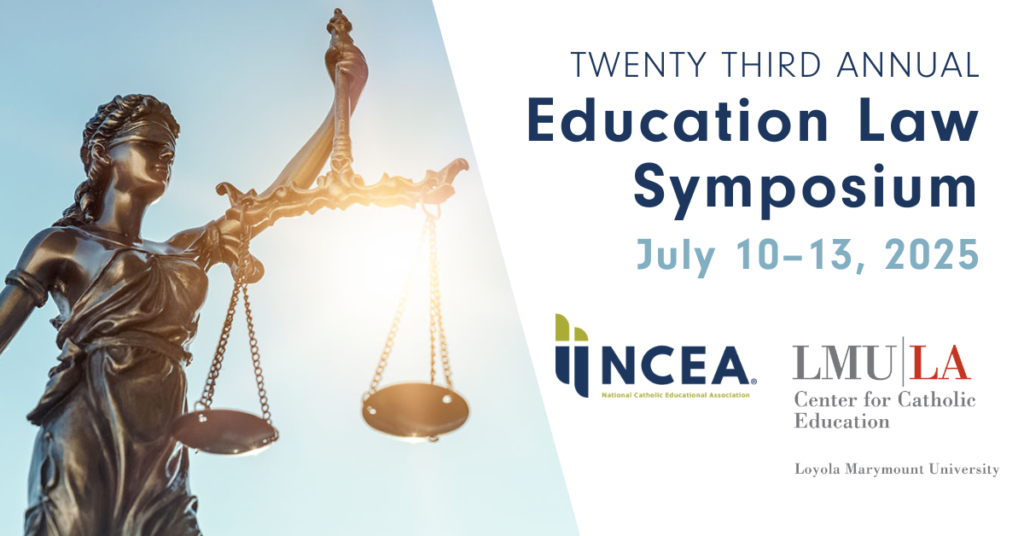Written by Dale McDonald, PBVM, Ph.D., NCEA Vice President of Public Policy, [email protected]
“Does this apply to Catholic schools?”
That is a question posed by many Catholic school leaders and teachers in a variety of situations. Knowing how to answer that question correctly is an important part of our mission as Catholic school educators. While understanding what to say or do may ease some secular legal concerns, it might also remind us of the ways we are called to implement gospel values in our school communities.
We live in an increasingly litigious society. Catholic schools are being challenged more frequently on a variety of actions and policies, many of which require some basic understanding of general legal issues. When challenged by anxious or aggrieved parents, school staff members, the local public school district personnel or the public at large about a particular situation, the administrator or teacher should have adequate knowledge about how to respond or where to direct the question for accurate information. Education law is usually complex and often differs in application for private and religious schools from that of public institutions. Catholic school administrators should know what those differences are and be able to communicate them to their teachers, students and school communities.
We have often heard it said that a little knowledge goes a long way—and that is true for Catholic school personnel regarding legal issues. Some general information about legal responsibilities under applicable law will go a long way towards avoiding behavior or policies that might trigger threats of litigation. Having the ability to respond to potential litigants about whether the accusations are legally applicable in the Catholic school is a first step. Most dioceses and schools have access to attorneys or law firms that are familiar with their various departments and policies and school administrators should be aware of the protocols for accessing that assistance if needed. It is also important to keep in mind what our mission and implementation of gospel values might say to the issue under consideration. We may not be legally required to do some things, but it may be a moral, Christian choice we ought to embrace.
Diocesan and school administrators and teachers should be aware of the many situations that can put institutions and individuals in legal jeopardy, such as issues concerning employment, accommodation of staff and students with disabilities, privacy and child custody issues, social media threats and others. Since teachers are often the first to be approached, it is important that they also be informed of these general areas of law so as not to exacerbate situations that may not even be applicable in private and faith-based schools.
Where do we get information?
The Twenty-Third Annual Education Law Symposium, sponsored by NCEA and Loyola Marymount University is a good place to start! The symposium will present a lineup of speakers who will delve into relevant topics in education law, provide valuable insights for school administrators and teachers, religious education professionals, pastors, school board members and other church personnel. It will explore current legal cases and offer timely insights into the latest decisions that impact Catholic schools as well as several additional topics that deal with everyday practical issues facing educators. A yearly highlight of the symposium is a panel discussion of practicing attorneys who answer participants’ questions and encourage participant dialogue.
Come join your colleagues in Catholic education ministry at the Twenty-Third Annual Education Law Symposium in Louisville, KY, from July 10-13, 2025.
